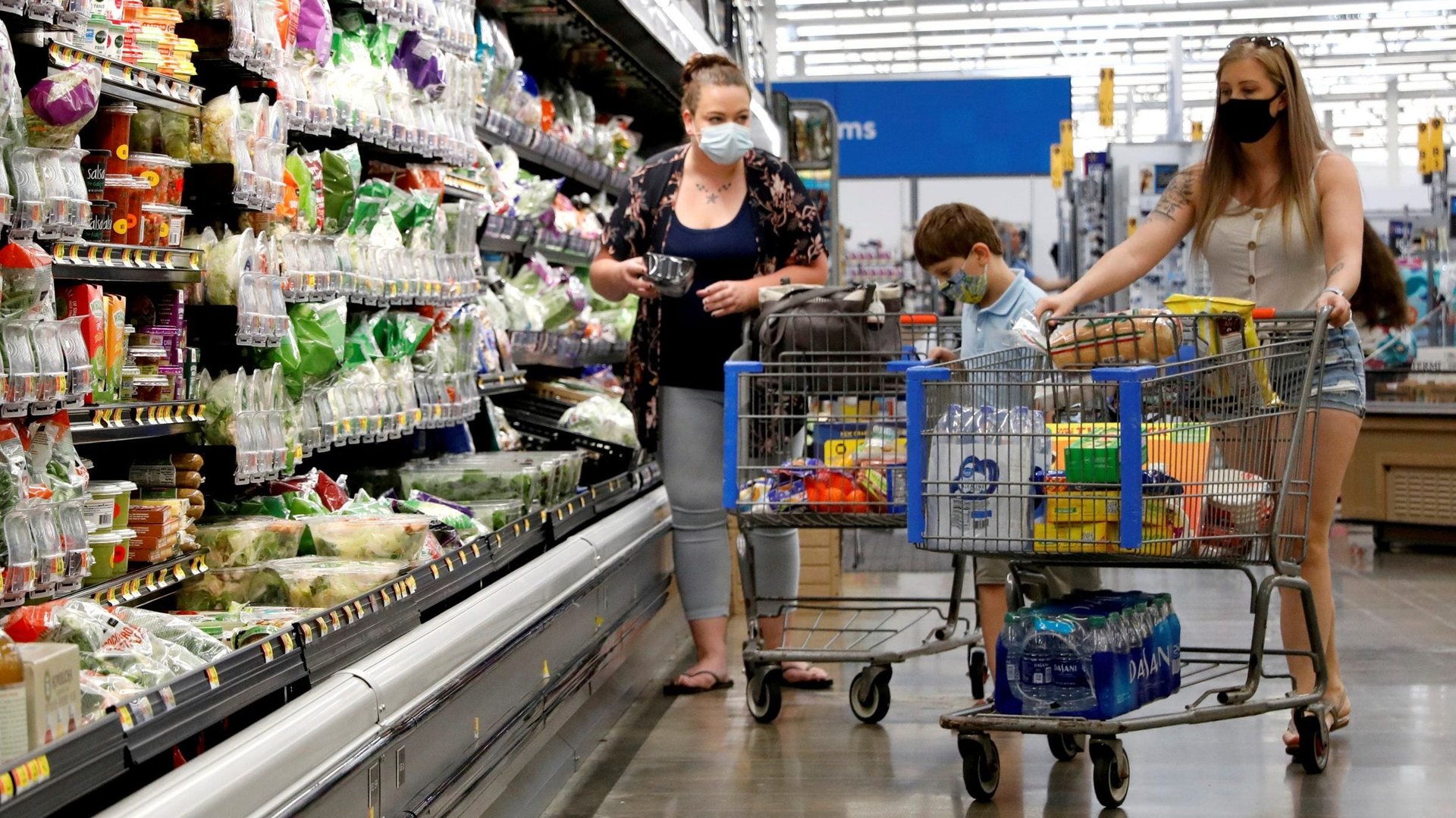Walmart has started using driverless trucks for its online grocery business
On a seven mile route between a distribution center and a Walmart store in Arkansas, the retail giant is now operating autonomous trucks without a safety driver behind the wheel.


On a seven mile route between a distribution center and a Walmart store in Arkansas, the retail giant is now operating autonomous trucks without a safety driver behind the wheel.
Two autonomous box trucks, provided by Gatik, an autonomous vehicle startup that focuses on logistics for the retail industry, haul customers orders from a Walmart distribution center that fulfills online orders to a retail store in Bentonville, Arkansas, where the retail company is headquartered. The goal of the fully driverless vehicles is to increase speed and responsiveness when carrying out e-commerce orders, according to a Walmart report on the project.
The program began in December after Walmart and Gatik received approval from the Arkansas State Highway Commission. The trucks were fully autonomous by August, completing delivery runs multiple times every day.
Walmart’s latest announcement comes amid an ongoing driver shortage both in the US and globally. Robots and automation fulfilling delivery could help resolve the labor problem for companies struggling to hire and retain workers while meeting increased customer demand.
Ongoing global driver shortage
Drivers have been in short supply for years, but that has been exacerbated during the pandemic, as shoppers ordered more stuff online. The industry is short of 80,000 drivers in the US and could increase with drivers turning to retirement, according to a report released last month by the American Trucking Associations. Part of the issue is retention, where drivers are leaving the industry for better pay and working conditions elsewhere.
Meanwhile, in the UK, the long-running shortage of truck drivers, who face low pay and difficult working conditions, has been accelerated by a post-Brexit exodus of European Union workers as well as a backlog of driving tests in Britain.
Driverless tech is here
Amid the struggle to find drivers—which does not appear to be resolving itself anytime soon—a slew of supermarkets are betting on robots for delivery and fulfillment.
During the pandemic, supermarkets have catered to the sudden demand for online delivery. But because these stores operate on narrow margins, delivery comes at a high cost. On top of that, wages in the leisure and hospitality sector have hit record highs, so robots could help do away with the need for as many workers.
Ocado, a British online grocer, said early October it is investing 10 million pounds ($13.6 million) in self-driving technology startup Wayve to pilot delivery vans and aims to expand the technology to the US. British supermarket chain Asada will also use Wayve’s technology to begin a 12-month trial of autonomous delivery vans in London in 2022. Meanwhile, Albertsons, a US grocery chain, in March began testing autonomous grocery delivery in northern California with remotely operated carts that can deliver up to 120 pounds of groceries to the customer’s door.
The investment in last-mile delivery began even before the pandemic. Since 2018, Kroger has partnered with Nuro, an autonomous vehicle delivery startup, to pilot autonomous delivery service in cities including Cincinnati and Houston.
Globally, spending on professional service robots rose 12% in 2020 to $6.7 billion, being concentrated in last-mile delivery and robots for warehousing, according to a recent report from International Federation of Robotics.